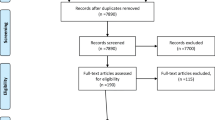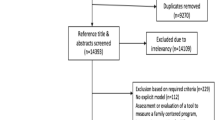Abstract
This article discusses the evaluation of the capacity of a person to make informed decisions about financial matters, independent living, and informed consent for medical treatment and research. Determination of capacity is a function for which most physicians have little training. The determination of competency for a general medical patient may be assessed by a combination of a bedside mental status examination such as the MMSE and a questionnaire such as the Aid To Capacity Evaluation (ACE 1999). For patients with focal neurological deficits such as aphasia, further evaluation of specific cognitive and language functions is needed; Alexander (Arch Neurol 45:23–6, 1988) suggested 7 specific functions to be assessed. Finally, in dementing illnesses, evaluation by the MMSE and a questionnaire such as the CCTI, or Capacity to Consent to Treatment Instrument (Marson et al. Arch Neurol 52:949–54, 1995) is needed. Dementia includes several separate syndromes of neurodegenerative disease, and in many of these conditions, focal deficits such as aphasia may necessitate a more thorough neuropsychological evaluation.
Similar content being viewed by others
References
Papers of particular interest, published recently, have been highlighted as: • Of importance •• Of major importance
Appelbaum P, Grisso T. Assessing patients’ capacities to consent to treatment. N Engl J Med. 1988;319:1635–8.
Rodin MB, Mohile SG. Assessing decisional capacity in the elderly. Semin Oncol. 2008;35:625–32.
• Marson DC, Ingram KK, Cody HA, Harrell LE. Assessing the competency of patients with Alzheimer’s disease under different legal standards. A prototype instrument. Arch Neurol. 1995;52:949–54. A good review of competency issues in Alzheimer’s disease and a testing method.
Sessums LL, Zembrzuska H, Jackson JL. Does this patient have medical decision-making capacity? JAMA. 2011;306:420–7.
Paterick TJ, Carson GV, Allen MC, Paterick TE. Medical informed consent: general considerations for physicians. Mayo Clin Proc. 2008;83:313–9.
Marson D, Dymek M, Geyer J. Informed consent, competency, and the neurologist. Neurologist. 2001;7:317–26.
Raymont V, Bingley W, Buchanan A, et al. Prevalence of mental incapacity in medical inpatients and associated risk factors: cross-sectional study. Lancet. 2004;364:1421–7.
Appelbaum PS. Assessment of patients’ competence to consent to treatment. N Engl J Med. 2007;357:1834–40.
• Aid To Capacity Evaluation (ACE) Available at: http://www.utoronto.ca/jcb. Accessed 25 Mar 2013. A useful test for determining competency.
Etchells E, Darzins P, Silberfeld M, et al. Assessment of patient capacity to consent to treatment. J Gen Intern Med. 1999;14:27–34.
•• Alexander MP. Clinical determination of mental competence. Arch Neurol. 1988;45:23–6. A discussion of competency issues in neurological patients, with an outline of suggested testing.
Stein J, Brady Wagner LC. Is informed consent a “yes or no” response? Enhancing the shared decision-making process for persons with aphasia. Top Stroke Rehabil. 2006;13:42–6.
Marson DC, Cody HA, Ingram KK, Harrell LE. Neuropsychological predictors of competency in Alzheimer’s disease using a rational reasons legal standard. Arch Neurol. 1995;52:955–9.
Folstein M, Folstein S, McHugh P. Mini-mental state. J Psychiatr Res. 1975;189–98.
Petersen RC, Stevens JC, Ganguli M, et al. Practice parameter: early detection of dementia: mild cognitive impairment (an evidence-based review). Report of the Quality Standards Subcommittee of the American Academy of Neurology. Neurology. 2001;56:1133–42.
Kirshner HS. Mild cognitive impairment: to treat or not to treat. Curr Neurol Neurosci Rep. 2005;5:455–7.
Kim SYH, Karlawish JHT, Caine ED. Current state of research on decision-making competence of cognitively impaired elderly persons. Am J Geriatr Psychiatry. 2002;10:151–65.
Kirshner H, Lavin PJM. Posterior cortical atrophy: a brief review. Curr Neurol Neurosurg Rep. 2006;6:477–80.
Alladi S, Xuereb J, Bak T, et al. Focal cortical presentations of Alzheimer’s disease. Brain. 2007;130:2636–45.
Kirshner HS. Primary progressive aphasia and Alzheimer’s disease: brief history, recent evidence. Curr Neurol Neurosci Rep. 2012;12:709–14.
Rohrer JD, Rossor MN, Warren JD. Syndromes of nonfluent primary progressive aphasia: a clinical and neurolinguistic analysis. Neurology. 2010;75:603–10.
Hanson JC, Lippa CF. Lewy body dementia. Int Rev Neurobiol. 2009;84:215–28.
Dymek M, Atchison P, Marrell L, et al. Competency to consent to treatment in cognitively impaired patients with Parkinson’s disease. Neurology. 2001;56:17–24.
Mesulam MM. Primary progressive aphasia. Ann Neurol. 2001;49:425–32.
Hodges JR, Patterson K. Semantic dementia: a unique clinicopathological syndrome. Lancet Neurol. 2007;6:1004–14.
Gorno-Tempini ML, Brambati SM, Ginex V, et al. The logopenic/phonological variant of primary progressive aphasia. Neurology. 2008;71:1227–34.
Gorno-Tempini ML, Hillis AE, Weintraub S, et al. Classification of primary progressive aphasia and its variants. Neurology. 2011;76:1006–14.
Rascovsky K, Hodges JR, Knopman D, et al. Sensitivity of revised diagnostic criteria for the behavioral variant of frontotemporal dementia. Brain. 2011;134:2456–77.
Conflict of Interest
Howard S. Kirshner declares that he has no conflict of interest.
Author information
Authors and Affiliations
Corresponding author
Additional information
This article is part of the Topical Collection on Behavior
Rights and permissions
About this article
Cite this article
Kirshner, H.S. Determination of Mental Competency, a Neurological Perspective. Curr Neurol Neurosci Rep 13, 356 (2013). https://doi.org/10.1007/s11910-013-0356-1
Published:
DOI: https://doi.org/10.1007/s11910-013-0356-1




